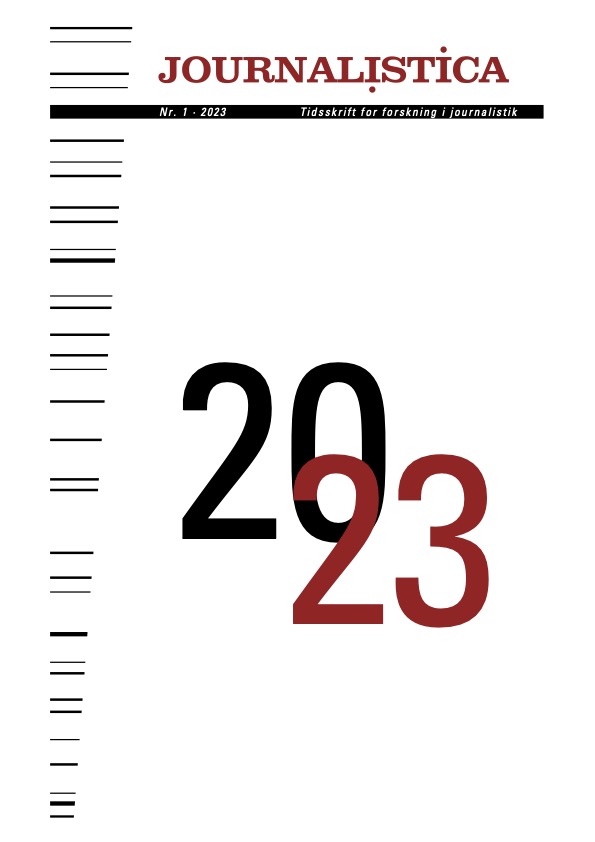Online text-based focus groups in journalism studies
DOI:
https://doi.org/10.7146/journalistica.v17i1.137236Keywords:
qualitative, focus groups, online, text-based, sensitive, synchronousAbstract
In this section, Journalistica puts a spotlight on research methods used in journalism studies and/or journalism practice.
References
Janghorban, R., Latifnejad Roudsari, R., & Taghipour, A. (2014). Skype interviewing: the new generation of online synchronous interview in qualitative research. Int J Qual Stud Health Well-being, 9, 24152. https://doi.org/10.3402/qhw.v9.24152
Kitzinger, J. (1994). The methodology of focus groups: the importance of interaction between research participants. Sociology of health & illness, 16(1), 103-121.
Krueger, R. A., & Casey, M. A. (2002). Designing and conducting focus group interviews (Vol. 18). Citeseer.
Rabiee, F. (2004). Focus-group interview and data analysis. Proceedings of the nutrition society, 63(4), 655-660.
Schmitz Weiss, A., & Higgins Joyce, V. d. M. (2009). Compressed dimensions in digital media occupations: Journalists in transformation. Journalism, 10(5), 587-603.
Stewart, K., & Williams, M. (2005). Researching online populations: the use of online focus groups for social research. Qualitative Research, 5(4), 395-416.
Thomsen, M., Dalen, A. v., Kristiansen, S., & Hopmann, D. N. (In review). How communicators can increase people’s opportunity, motivation, and ability to acquire knowledge of pesticides and biocides.
Woodyatt, C. R., Finneran, C. A., & Stephenson, R. (2016). In-person versus online focus group discussions: A comparative analysis of data quality. Qualitative health research, 26(6), 741-749.
Downloads
Published
How to Cite
Issue
Section
License
Copyright (c) 2023 Morten Thomsen

This work is licensed under a Creative Commons Attribution 4.0 International License.
Forfattere, der publicerer deres værker via dette tidsskrift, accepterer følgende vilkår:
- Forfattere bevarer deres ophavsret og giver tidsskriftet ret til første publicering, samtidigt med at værket er omfattet af en Creative Commons Attribution-licens, der giver andre ret til at dele værket med en anerkendelse af værkets forfatter og første publicering i nærværende tidsskrift.
- Forfattere kan indgå flere separate kontraktlige aftaler om ikke-eksklusiv distribution af tidsskriftets publicerede version af værket (f.eks. sende det til et institutionslager eller udgive det i en bog), med en anerkendelse af værkets første publicering i nærværende tidsskrift.
- Forfattere har ret til og opfordres til at publicere deres værker online (f.eks. i institutionslagre eller på deres websted) forud for og under manuskriptprocessen, da dette kan føre til produktive udvekslinger, samt tidligere og større citater fra publicerede værker (se The Effect of Open Access).




